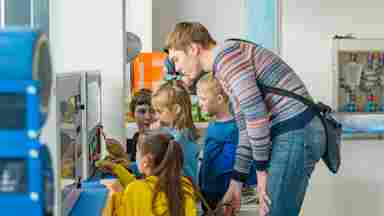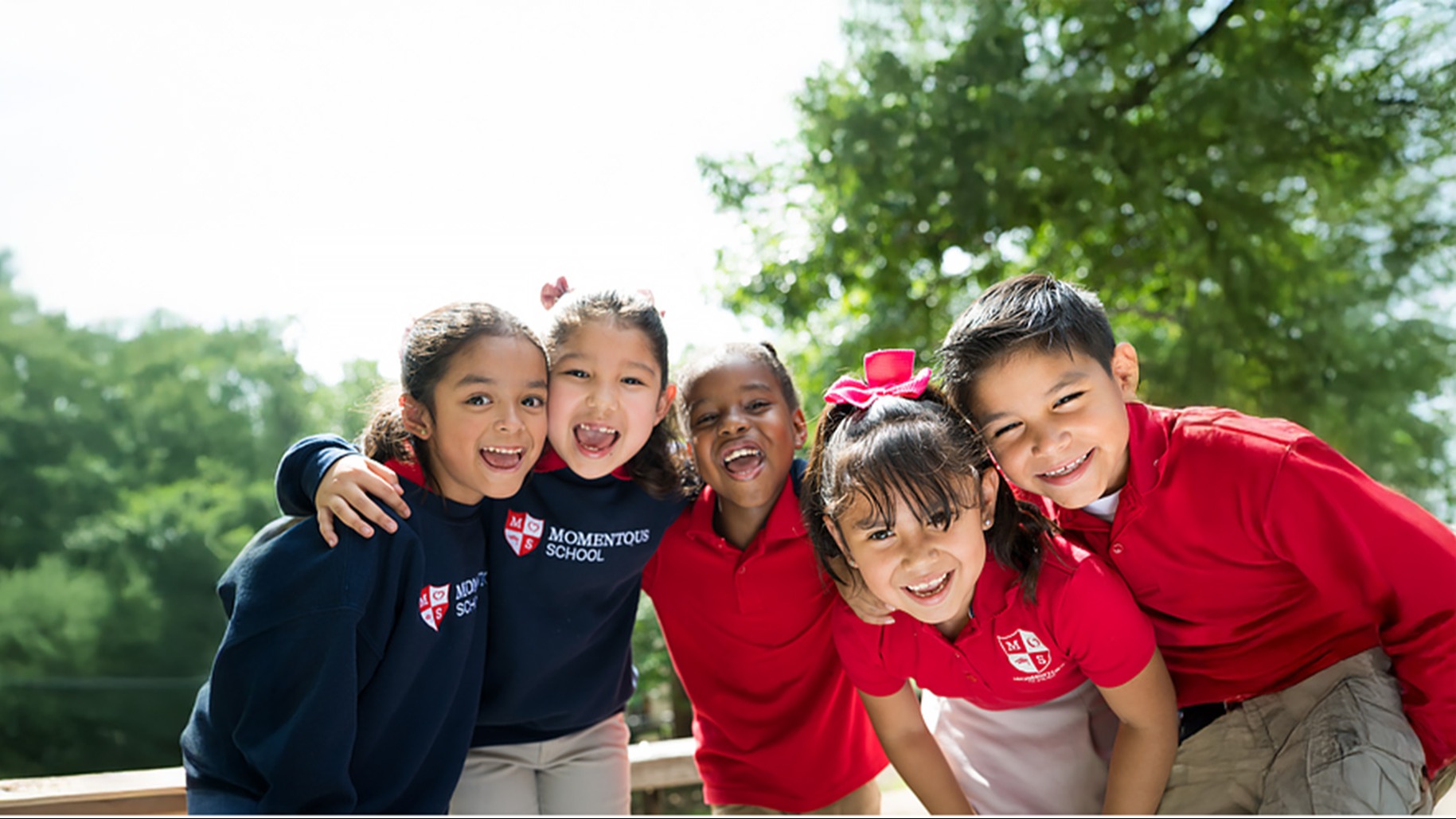Overview
Teachers at Momentous School in Dallas, a private elementary school that serves students from low-income families, include lessons on neuroscience and mindfulness in the classroom for their pre-K students through fifth graders. Momentous demonstrates a shift that is emerging in other schools across the country, focused on teaching self-awareness and regulation to our youngest learners.Preschoolers learn about the brain by singing “The Brain Song” and practice mindfulness by lying down with stuffed animals and watching them move up and down as they breathe. Older students learn techniques for self-calming, like slowly counting while breathing in and out, and classrooms for all ages offer tactile models of the brain. Students are challenged and inspired to learn about different parts of the brain, such as the prefrontal cortex, which controls such processes as executive function and problem solving, and the brain stem, which regulates breathing and blood pressure. A recent study by Momentous Institute and the Center for BrainHealth at the University of Texas at Dallas found this approach may be contributing to positive outcomes for graduates of the school.“”


